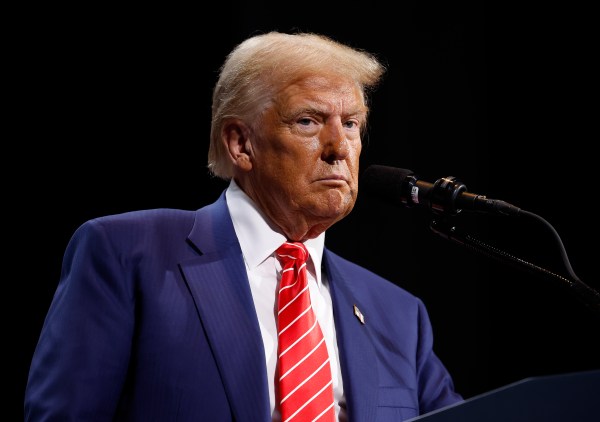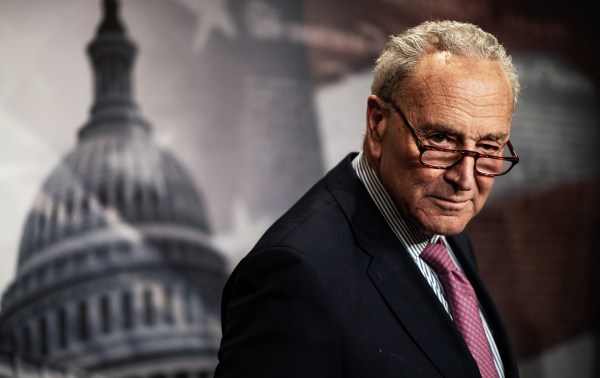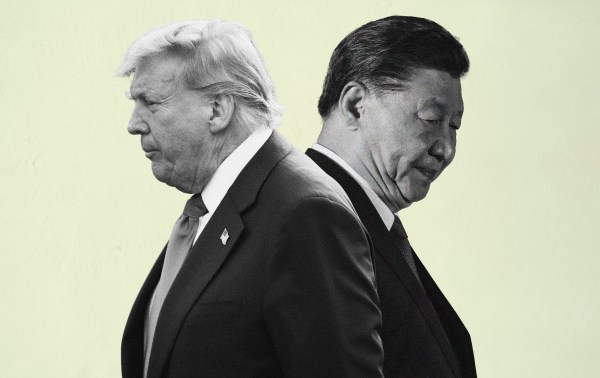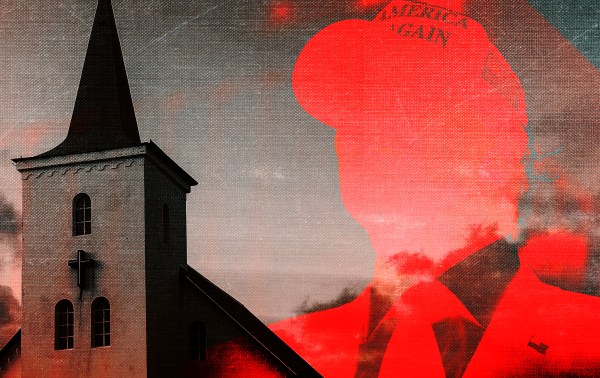Optimism is atypical for this newsletter but sometimes it can’t be avoided. If you want to feel optimistic about the future of our idiotic trade war, read this.
According to the Washington Post, White House chief of staff Susie Wiles and Treasury Secretary Scott Bessent approached the president last month to warn him that “his own voters were in danger if the tariffs did not come down,” which is certainly true and getting truer by the day. That was the final nudge needed to persuade Donald Trump to greenlight talks with Beijing that eventually slashed, for 90 days, the U.S. tax rate on Chinese imports from 145 percent to 30.
“The key argument was that this was beginning to hurt Trump’s supporters—Trump’s people,” a source told the Post. “It gave Susie a key window.”
“Trump’s people.” That’s how you appeal to a nationalist. The fact that Wiles and Bessent, two of his more sober cronies, have figured that out makes me think they’ll continue to successfully influence his thinking on trade and everything beyond.
Nationalism is tribalism disguised as patriotism. It pretends to prioritize the interests of the national tribe above all others—America First—but in practice it’s concerned with securing the dominance of favored tribes within the nation. Tell the president that Americans will suffer because of his tariffs and he’ll mumble something about making do with fewer dolls. Tell him that his people will suffer because of them and you’ll get his attention.
A memorable footnote to his first term came in a Vanity Fair piece published early in the pandemic that explained why the White House preferred a state-by-state COVID response. An expert quoted in the piece claimed that a member of Jared Kushner’s coronavirus task force argued “that because the virus had hit blue states hardest, a national plan was unnecessary and would not make sense politically. ‘The political folks believed that because it was going to be relegated to Democratic states, that they could blame those governors, and that would be an effective political strategy,’ said the expert.”
So long as the virus was merely killing those Americans, not “Trump’s people,” it didn’t require an all-out federal effort at containment.
Another memorable insight from Trump 1.0 into how he and his very patriotic fans approach politics came during the federal government shutdown of late 2018 when one of his supporters complained to the New York Times, “He’s not hurting the people he needs to be hurting.” That sums up the logic that Wiles and Bessent used to get Trump to bend on tariffs. It’s fine, even good, for Trump’s trade policy to hurt the millions of Americans who deserve to suffer for not supporting him, but when it starts hurting his own tribe? That’s when it’s time to change course.
If you need further convincing that MAGA nationalism by no means tracks with America’s national borders, consider what happened on Monday.
Defining the tribe.
A recurring challenge in writing about the president’s corruption is that it usually plays out in public. How do you find something non-obvious to say about malfeasance that would be obvious to a 6-year-old?
I did my best with his new jet but there’s really nothing to discuss. It’s exactly what it looks like: It’s a bribe. Qatar is bribing Trump to buy his indulgence for its strategy of playing both sides in the Middle East, simultaneously hosting a key U.S. military base and (until recently) Hamas leaders. They’re handing him a fat envelope in the shape of an airplane and he palpably can’t wait to open it.
Even apologists like Ben Shapiro won’t pretend otherwise.
I have the same problem today in writing about America’s newest refugees. For me to decipher for you what’s happening in their case is to insult your intelligence by implying that it’s not glaringly apparent.
The new refugees are Afrikaners, descendants of the now-defunct white ruling class that subjugated South Africa’s black majority under apartheid. The Trump administration spends most of its time looking for ways to keep foreigners out—“America is for Americans and Americans only,” in Stephen Miller’s words—but the Afrikaners are a remarkable exception. Their fate was so important to the president that, less than a month into his new term, he denounced South Africa’s government for confiscating farmland from them intended for redistribution to black residents and signed an executive order prioritizing them for resettlement as refugees.
Some refugees wait years before being approved to relocate to America. The Afrikaners who arrived in Washington on Monday waited three months. They got the red-carpet treatment too, with Deputy Secretary of State Christopher Landau waiting at the airport to greet them. When reporters asked Landau why Afghan refugees are being told to go back where they came from while the welcome mat is rolled out for the Afrikaners, he replied that one important criterion for resettlement is whether a refugee “can be assimilated easily into our country.”
Assimilated? Assimilated how?
Did he mean that a majority-Christian country like the United States prefers its migrants to be Christian? If so, it’s strange that the White House should remain so hostile to taking in asylum applicants from heavily Catholic regions like Latin America.
It can’t be compassion that’s led the president to sympathize with the Afrikaners. He doesn’t do compassion, but even if he did, there’s no reason to think the South Africans are at greater risk of persecution than pro-American Afghans are by the Taliban—or than Kilmar Abrego Garcia is in El Salvador, the one country on Earth so dangerous to him that the federal government was forbidden by a judge to send him there.
This is an administration that was hoping to dump detained migrants in Libya, of all places; it doesn’t care a lick about the welfare of foreigners, almost by definition.
Transnational nationalism.
You know as well as I do why the Afrikaners have been given priority. They’re “Trump’s people.” MAGA nationalism stands for the belief that America was and should remain a country ruled by white Christians. Granting special dispensation to white refugees from South Africa who are at risk of abuses from a majority-black government underlines that point. Welcoming them makes no sense if nationalism is about national identity but all the sense in the world if it’s about transnational tribal identities like race. Which it is.
Trump barely manages to limit himself to euphemisms when he talks about this stuff. At a fundraiser last year, seemingly referencing the “sh-thole countries” episode from his first term, he told the crowd, “And when I said, you know, Why can’t we allow people to come in from nice countries, I’m trying to be nice…. Nice countries, you know like Denmark, Switzerland? Do we have any people coming in from Denmark? How about Switzerland? How about Norway?”
He could have mentioned Japan or South Korea if he wanted to contrast immigrants from first-world and third-world nations. Instead his mind went to the Nordic countries, famously some of the whitest and blondest on Earth. He’s thisclose to sounding like one of those Groyper chuds on Twitter who are forever reminiscing wistfully about Rhodesia.
If and when he’s pressured by his base into pardoning Derek Chauvin, the Minnesota cop who killed George Floyd, it won’t be because Floyd “died of a drug overdose” any more than the January 6 cop-punchers were pardoned because they were held as “hostages” without due process. It’ll be because Chauvin, like the insurrectionists and the Afrikaners, is one of “our people.” To nationalists, his imprisonment means that the ruling white tribe lost a power struggle to the subordinate black one. And that simply cannot stand if America is to be made great again.
Per Jonathan Last, one of the Afrikaners who arrived on Monday has been known to post things on social media like “Jews are untrustworthy and a dangerous group” and “they are not God[‘]s chosen like [they] believe they are.” Remember, the White House’s argument for expelling pro-Palestinian activists like Mahmoud Khalil is that antisemitism so offends the policy of the United States that foreigners who practice it won’t be tolerated. But that’s not true, it turns out. At least not if you’re one of “our people.”
We should have anticipated that, as it’s become clearer over time that the administration is using fear of antisemitism as a pretext or moral shield of sorts to justify persecution based on ideology. Trump’s may be the first nationalist movement in modern history that eyes Jews not as a population to abuse but one to hide behind as it abuses others. They’re part of “our people” too, at least as long as MAGA can find some political use for them. Thank heaven for progress.
Here’s a curveball for you, though: Might the president’s tribalism actually be good for America, at least with regard to foreign policy?
Tribalist kinship.
Fairness requires that we acknowledge that Trump doesn’t seem to imagine the boundaries of his “tribe” as crudely as his most bigoted supporters do. I don’t know if this is a compliment or not, but I think he’s too greedy and narcissistic to be an ideological racist.
An ideological racist would favor the Nordic countries I mentioned instinctively over Muslim-majority “sh-tholes” in the Middle East. That is not how Donald Trump behaves. It’s Denmark, not Qatar, that he’s threatening to attack; it’s Qatar, not Denmark, where he’s backslapping dignitaries this week.
The fact that he’s over the moon about being gifted a plane by Hamas’ sugar daddies in Doha is further proof that his aversion to antisemitism is an inch deep in practice. But his fondness for the Qataris and Saudis is noteworthy for another reason: It suggests a sense of tribalist kinship, a shared understanding of how the world does, and should, work. Which is potentially useful.
Addressing an audience in Saudi Arabia on Tuesday that included the crown prince, he said this:
“It’s crucial for the wider world to know this great transformation has not come from western intervention or flying people in beautiful planes giving you lectures on how to live and how to govern your own affairs, no,” he said.
“The gleaming marbles of Riyadh and Abu Dhabi were not created by the so-called nation builders, neocons or liberal nonprofits like those who spent trillions and trillions of dollars failing to develop Kabul, Baghdad, so many other cities,” he said. “Instead, the birth of a modern Middle East has been brought by the people of the region themselves. … In the end, the so-called nation builders wrecked far more nations than they built, and the interventionalists were intervening in complex societies that they did not even understand themselves.”
“In recent years, far too many American presidents have been afflicted with the notion that it’s our job to look into the souls of foreign leaders and use U.S. policy to dispense justice for their sins,” the president added.
You can read that as a statement of ideological principle if you like, a précis of the isolationist case against neoconservatism, but that would be awfully tricky after four months of Trump’s new “manifest destiny” foreign policy. His designs on Greenland are a lot more intrusive than lecturing its residents on how to govern themselves; with Canada he’s gone as far as to demand that the border between our two countries be renegotiated, assuming the Canadians continue to foolishly resist being annexed. The neocons never went that far in meddling abroad, even in Iraq.
Also: How else should we describe what J.D. Vance did when he visited Munich in February if not lecturing Europeans on how to live and how to govern their affairs? If cultural imperialism is a political sin, why are Trump-run U.S. embassies in Europe demanding that their host cities end their diversity, equity, and inclusion programs?
The president has zero problem in the abstract with the United States “intervening in complex societies that it doesn’t even understand itself” and throwing its weight around. His problem is with doing so for the sake of gassy civic principles like freedom, democracy, and equal rights for minorities. Tribes don’t care about nonsense like that. What they care about is enriching themselves and establishing dominance over rival tribes that might challenge their power.
His speech in Riyadh wasn’t about celebrating isolationism over interventionism, it was about celebrating tribalism over liberalism. No wonder he gets along famously with Arab leaders in the famously tribal Middle East. They’re birds of a feather. They see the world the same way.
Peace in our time?
George W. Bush’s argument to Sunni bigwigs after 9/11 was that their kingdoms would eventually be toppled by Salafist fanatics if they didn’t liberalize and give their subjects more of a voice in government. But that was a hard sell. From the perspective of the House of Saud, being ousted in a jihadi-led uprising and being ousted in a democratic election were two sides of the same very bad coin.
Trump’s proposition is simpler and more appealing: Let’s make each other’s tribes, or at least each other, rich. He doesn’t mind if the Saudis murder a Jamal Khashoggi here and there; if anything, he presumably admires the way they conduct dirty tribal business just as he admires other demonstrations of authoritarian ruthlessness. And he’s certainly not hoping to see the Saudi and Qatari royals deposed. Why would he? Who’s going to buy him his next jet if some populist faction over which he has no influence comes to power in Riyadh or Doha?
Being head sheikh in an Arab royal family whose tribe rules an oil-rich kingdom is Donald Trump’s supreme fantasy, I suspect. Wielding an iron fist with legal impunity, accessing limitless wealth, and getting to prioritize the interests of your tribe—your people—without hearing a word of dissent is the authoritarian dream. What he’s realistically capable of achieving in attempting to reboot American politics as a nakedly tribal system of patronage pales by comparison to standard operating procedure in the Middle East.
Nothing would make him happier than turning America into a “sh-thole country,” I’m sure, so long as it came with the perks that leaders in those countries typically enjoy.
Trump knows how to talk to those leaders. He relates to them. And maybe that’s auspicious for the prospects of peace in the Middle East.
At the risk of sounding optimistic twice in the same newsletter, if you believe that ending the endless Palestinian conflict depends on getting the Sunni and Shiite powers in the region to recognize Israel, things are looking up. Trump kept the pressure light on Saudi Arabia to join the Abraham Accords during his visit to Riyadh but he’s plainly succeeded at deepening the alliance between our country and theirs. He’ll have even more leverage with the crown prince going forward, especially after doing him a favor by lifting sanctions on Syria’s new Sunni president.
Meanwhile, Iran appears surprisingly close to a deal with the White House to limit nuclear enrichment in return for lifting U.S. sanctions. It no longer has the military reach in the region that it used to thanks to Israel’s campaigns against its proxies; it’s doubtless nervous at seeing Riyadh strengthening ties with Washington day by day; and it may regard Trump’s decision to block an Israeli attack on Iranian nuclear facilities as a rare opening for rapprochement with the U.S.
In fact, never has there been a better opportunity for Israel’s adversaries in the region to gain influence with America than right now, especially with the president growing chilly lately toward the Jewish state. Trump obviously doesn’t care a bit that it’s the region’s only democracy (the only one besides George Bush’s Iraq, anyway) and so the usually insuperable preference in Washington for Israel over nations like Saudi Arabia and Iran no longer abides. The tribalist-in-chief will be happy to entertain any other tribal chieftains who are interested in paying tribute.
If he uses that leverage to swing a deal in which the money tap for outfits like Hamas and Hezbollah is finally turned off, he’ll have achieved something meaningful. Even if it’s the prospect of future fat envelopes with wings that motivated him.










Please note that we at The Dispatch hold ourselves, our work, and our commenters to a higher standard than other places on the internet. We welcome comments that foster genuine debate or discussion—including comments critical of us or our work—but responses that include ad hominem attacks on fellow Dispatch members or are intended to stoke fear and anger may be moderated.
With your membership, you only have the ability to comment on The Morning Dispatch articles. Consider upgrading to join the conversation everywhere.